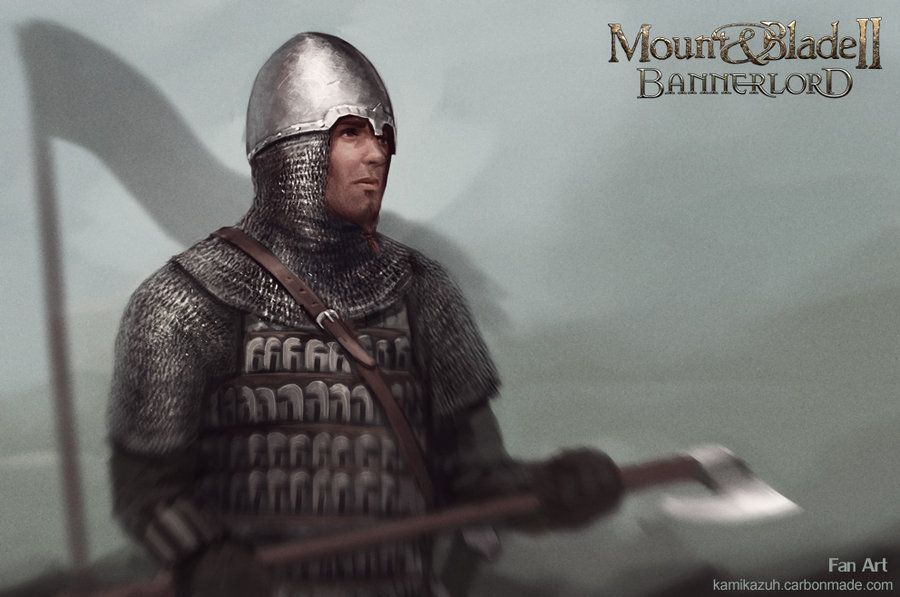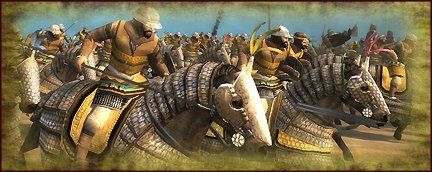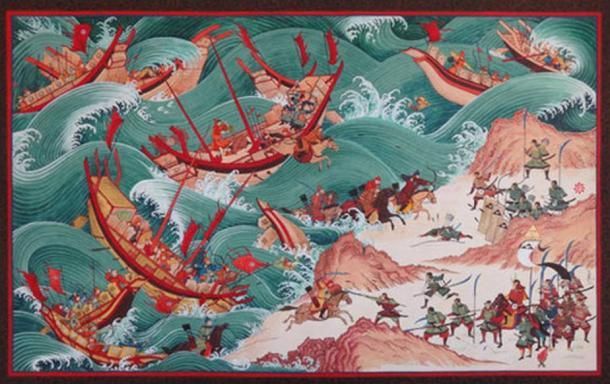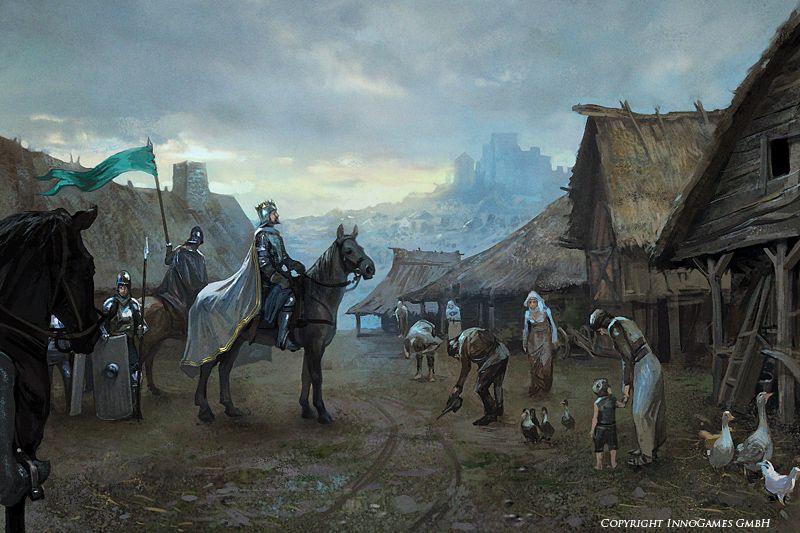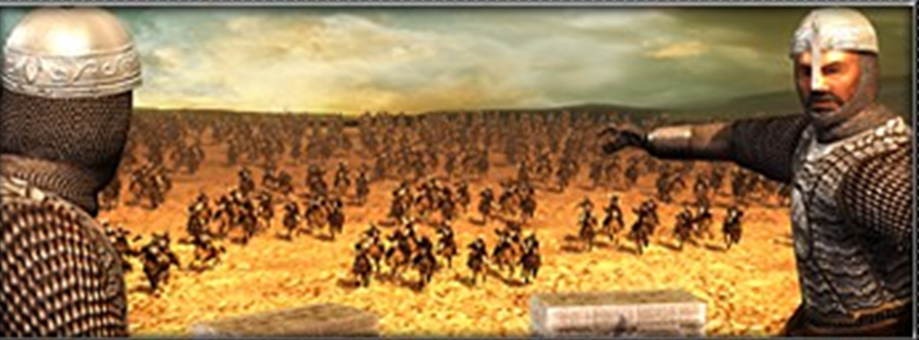Court News
Posted: 21:30:22 Monday, 14 March, 2016
1273
Europe
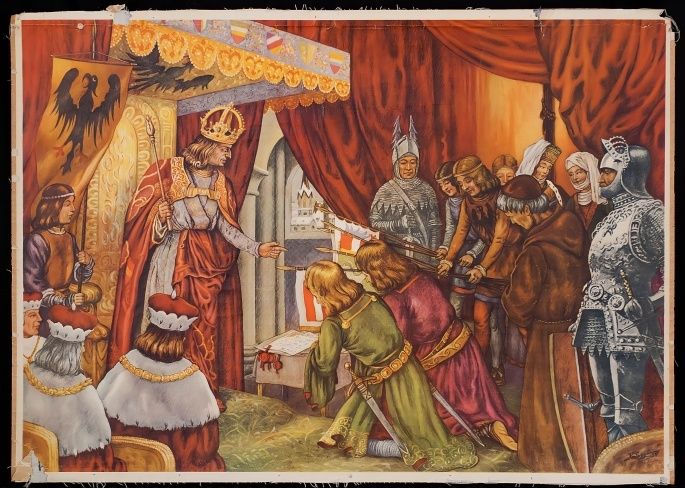
Rudolph I of Germany receiving oaths of fealty from his subject lords.
- Rudolph I of Germany is elected King of Germany over the rival candidate King Otakar II of Bohemia, ending the Interregnum; Otakar refuses to acknowledge Rudolph as the new king causing tensions between the two to rise exponentially.
- Thomas Aquinas quits his writing of Summa Theologica, leaving it unfinished after having a mystical experience during mass.
- The Constantinople suburb of Galata is given to the Republic of Genoa by the Byzantine Emperor Michael VIII Palaiologos, in return for Genoa's support of the Empire after the Fourth Crusade and the sacking of Constantinople.
- King Otakar II of Bohemia captures Bratislava from Hungary.
- Alfonso X of Castile creates and grants privileges to the Mesta to promote the wool industry.
Middle East
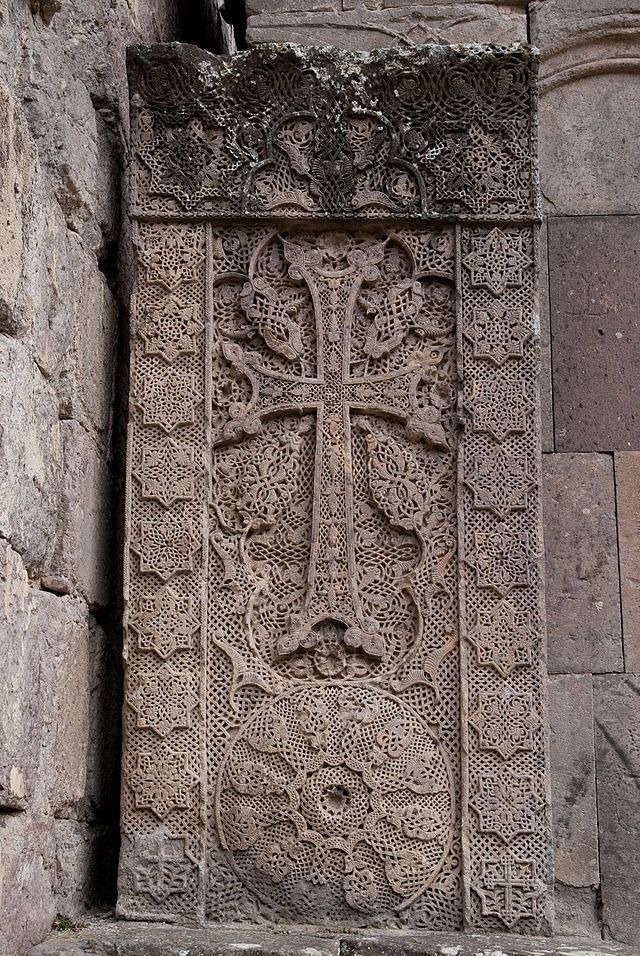
Khachkar at Goshavank Monastery in Armenia
- The Sultan Baybars captures the last remaining stronghold of the Hashashin sect, al-Kahf Castle. The Syrian branch of the famous Assassins now carries out their services for the Mamalukes of Egypt.
- Followers of the recently deceased Jalal al-Din Muhammad Rumi establish the Sufi order of the Whirling Dervishes in the city of Konya, in Anatolia.
- The "Holy Redeemer" khachkar, one of the finest examples of the art form, is carved in Haghpat, Armenia, by Vahram.
Asia
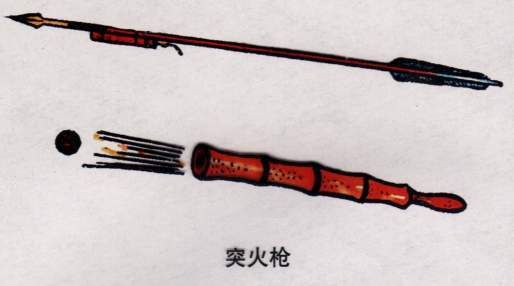
Illustration of a Fire Spear
- The 6-year-long battle of Xiangyang ends as the commander of the Song Dynasty's forces surrender to Kublai Khan's Yuan Dynasty. The final battle is said to have been ferocious. A new weapon, known in Asia as a 'Fire Spear' was said to be used.
- In Korea, the Sambyeolcho Rebellion against the Goryeo Dynasty (a puppet government of the Yuan Dynasty) ends as rebel forces are defeated by combined Yuan and Goryeo forces.
Births
- Alphonso, Earl of Chester, son of Edward I of England is born. He is Edward's 9th Child.
- David VIII of Georgia, son of Demetrius II of Georgia is born.
Spring and Summer 1274
Europe
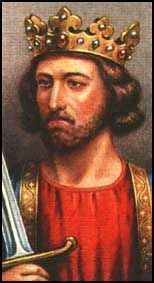
Portrait of Edward I, King of England
- The Second Council of Lyons, held by the leadership of the Roman Catholic Church convenes to consider the liberation of the Holy Land via Crusades and to address the East-West Schism with the Byzantine church. The Council eventually approves a tithe to support efforts to liberate the Holy Land from Muslims, and reaches apparent resolution of the schism.
- Bonvesin de la Riva writes the didactic-allegoric poemet Libro delle Tre Scritture (Negra, Rubra, Aurea), the first text in ancient Western Lombard language. It tells about Hell, Christ's Passion and Paradise; this plot suggests Dante in his Comedia.
- Pope Gregory X decrees that conclaves (meetings during which the electors have no contact with the outside) should be used for papal elections, reforming the electoral process which had taken over 3 years to elect him.
- Joseph ben Abraham Gikatilla writes Ginnat Egoz (Garden of Nuts).
- King Edward I of England finally returns from the Ninth Crusade to England to be crowned king, 2 years after his father King Henry III's death. His interim chancellor and effective regent, Walter de Merton retires from royal service to make the final revisions to his statutes for the foundation of Merton College, Oxford and take up the post of Bishop of Rochester.
- One of Edward's first acts is to enforce a decree requiring all English Jews to wear yellow badges.
- The first main survey of the Hundred Rolls, an English census seen as a follow up to the Domesday Book completed in 1086, is begun.
Africa
- The Marinid Amir, Abu Yusuf Yaqub, enters peacefully into Ceuta putting an end to some forty years of independence of the city.
Asia
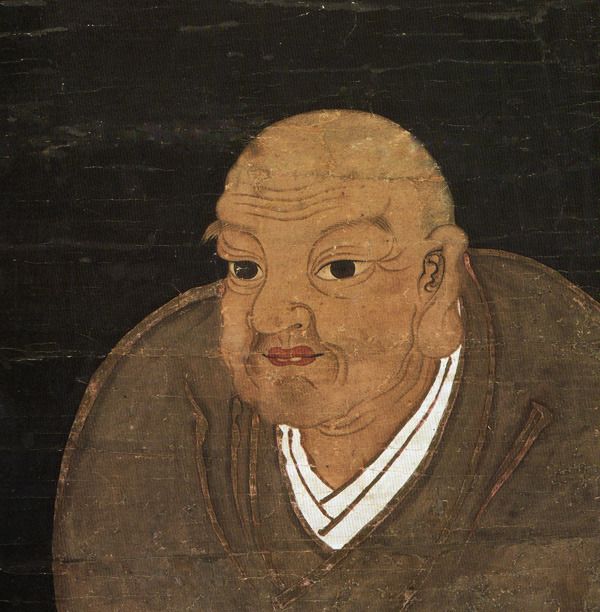
Portrait of Nichiren
- Nichiren, founder of Nichiren Buddhism, enters exile on Mount Minobu.
Births
- Louis of Toulouse is born. He is the second son of Charles of Anjou and Maria Arpad of Hungary.
- Robert the Bruce is born. Robert was is the first son of Robert de Brus, 6th Lord of Annandale, and Marjorie, Countess of Carrick.
Europe

Rudolph I of Germany receiving oaths of fealty from his subject lords.
- Rudolph I of Germany is elected King of Germany over the rival candidate King Otakar II of Bohemia, ending the Interregnum; Otakar refuses to acknowledge Rudolph as the new king causing tensions between the two to rise exponentially.
- Thomas Aquinas quits his writing of Summa Theologica, leaving it unfinished after having a mystical experience during mass.
- The Constantinople suburb of Galata is given to the Republic of Genoa by the Byzantine Emperor Michael VIII Palaiologos, in return for Genoa's support of the Empire after the Fourth Crusade and the sacking of Constantinople.
- King Otakar II of Bohemia captures Bratislava from Hungary.
- Alfonso X of Castile creates and grants privileges to the Mesta to promote the wool industry.
Middle East

Khachkar at Goshavank Monastery in Armenia
- The Sultan Baybars captures the last remaining stronghold of the Hashashin sect, al-Kahf Castle. The Syrian branch of the famous Assassins now carries out their services for the Mamalukes of Egypt.
- Followers of the recently deceased Jalal al-Din Muhammad Rumi establish the Sufi order of the Whirling Dervishes in the city of Konya, in Anatolia.
- The "Holy Redeemer" khachkar, one of the finest examples of the art form, is carved in Haghpat, Armenia, by Vahram.
Asia

Illustration of a Fire Spear
- The 6-year-long battle of Xiangyang ends as the commander of the Song Dynasty's forces surrender to Kublai Khan's Yuan Dynasty. The final battle is said to have been ferocious. A new weapon, known in Asia as a 'Fire Spear' was said to be used.
- In Korea, the Sambyeolcho Rebellion against the Goryeo Dynasty (a puppet government of the Yuan Dynasty) ends as rebel forces are defeated by combined Yuan and Goryeo forces.
Births
- Alphonso, Earl of Chester, son of Edward I of England is born. He is Edward's 9th Child.
- David VIII of Georgia, son of Demetrius II of Georgia is born.
Spring and Summer 1274
Europe

Portrait of Edward I, King of England
- The Second Council of Lyons, held by the leadership of the Roman Catholic Church convenes to consider the liberation of the Holy Land via Crusades and to address the East-West Schism with the Byzantine church. The Council eventually approves a tithe to support efforts to liberate the Holy Land from Muslims, and reaches apparent resolution of the schism.
- Bonvesin de la Riva writes the didactic-allegoric poemet Libro delle Tre Scritture (Negra, Rubra, Aurea), the first text in ancient Western Lombard language. It tells about Hell, Christ's Passion and Paradise; this plot suggests Dante in his Comedia.
- Pope Gregory X decrees that conclaves (meetings during which the electors have no contact with the outside) should be used for papal elections, reforming the electoral process which had taken over 3 years to elect him.
- Joseph ben Abraham Gikatilla writes Ginnat Egoz (Garden of Nuts).
- King Edward I of England finally returns from the Ninth Crusade to England to be crowned king, 2 years after his father King Henry III's death. His interim chancellor and effective regent, Walter de Merton retires from royal service to make the final revisions to his statutes for the foundation of Merton College, Oxford and take up the post of Bishop of Rochester.
- One of Edward's first acts is to enforce a decree requiring all English Jews to wear yellow badges.
- The first main survey of the Hundred Rolls, an English census seen as a follow up to the Domesday Book completed in 1086, is begun.
Africa
- The Marinid Amir, Abu Yusuf Yaqub, enters peacefully into Ceuta putting an end to some forty years of independence of the city.
Asia

Portrait of Nichiren
- Nichiren, founder of Nichiren Buddhism, enters exile on Mount Minobu.
Births
- Louis of Toulouse is born. He is the second son of Charles of Anjou and Maria Arpad of Hungary.
- Robert the Bruce is born. Robert was is the first son of Robert de Brus, 6th Lord of Annandale, and Marjorie, Countess of Carrick.
